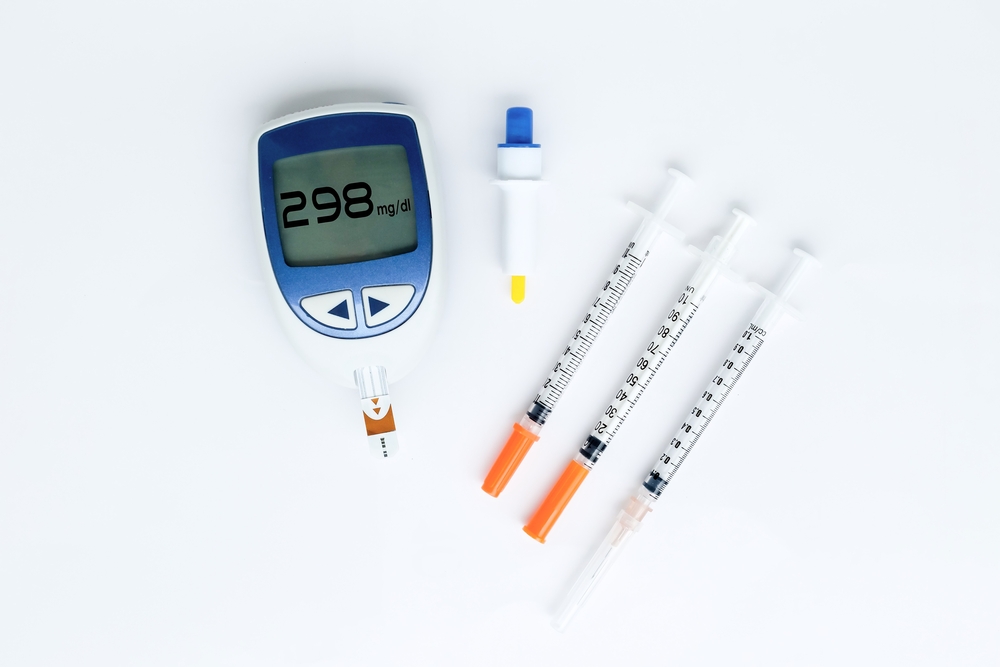Type 1 Diabetes Life Expectancy
We all know that death is inevitable and that we have to meet it at some time, whether we are ready for it or not. Death is always a lingering shadow that scares a lot of people since it can creep up on you silently and cause an untimely demise through causes that you least expect. Type 1 diabetes life expectancy is one of the things that concerns patients, especially because diabetics are already dependent on insulin shots.
However, for some people who have certain diseases, they view death as an inevitable part of their lives. When a person suffers from a chronic disease, he will rightfully understand that it will affect his life expectancy one way or another like in the case of diabetes.
Know What Studies Say About Type 1 Diabetes Life Expectancy

Type 1 diabetes life expectancy is one of the most studied issues about the disease. There are several studies conducted which cater to the enhancement of knowledge regarding this specific diabetes life expectancy. So what do different studies say about the life expectancy of type 1 diabetes? That’s what we’ll find out here.
Journal Of The American Medical Association
A report was published in the Journal of the American Medical Association on January 6, 2015, showing the results of a Scottish study conducted by the University of Dundee School of Medicine in Scotland. The study concluded that men who have type 1 diabetes lose almost 11 years of their life when compared to men who are not affected by the disease. Meanwhile, type 1 diabetes life expectancy among women is 13 years shorter when compared to that of the healthy population of the said gender.
This study shows how diabetes life expectancy is shorter than their healthy counterparts of the community. A person who has diabetes type 1 may need to take care of his heart more often as it has an enormous impact in reducing the life-expectancy of an individual. The study also added that people with type 1 diabetes who are younger than 50 years old tend to die in large numbers due to mismanagement of the disease which leads to conditions such as a diabetic coma caused by very low blood sugar and ketoacidosis resulting from insufficient insulin in the body.
Dr. Helen Colhoun, the professor in the diabetes epidemiology unit of the University, stated that these conditions show how it becomes an everyday challenge for people with diabetes to get the right amount of insulin in their body at the right time when their blood badly needs it. Another review likewise, recommended that intensive blood sugar management is helpful in avoiding such early deaths. Co-author of the survey, Dr Samuel Dagogo-Jack of the University of Tennessee.
Health Center’s
Health Science Center located in Memphis said that individuals who were given better glucose control for intensive therapy had increased their chances of survival. The study was able to decrease the number of premature deaths by about 1/3 as they conduct multiple blood glucose tests throughout the day and provide insulin injections to those who need to reach a targeted blood sugar level.
They said that with strict control of blood sugar levels, the life expectancy of type 1 diabetics becomes better since there is a 44% reduction in the overall risk of death. Meanwhile, going back to the Scottish study, they have found out that males who have type 1 diabetes have an average life expectancy of around 66 years compared to the 77 years life expectancy of men without it.
Women who have diabetes, on the other hand, are expected to live up to 68 years, while those who are free from the disease can live up to 81 years.
Diabetes In Control
In an Australian study published on the website of Diabetes in Control on February 20, 2016, to check for the years of life lost (YLL), they found out that there is no difference in the life expectancy between women and men who have type 1 diabetes. The YYL were organized in two groups, 1997-2003 and 2004-2010, the latter group has shown improvement in their life expectancies. Men improved by 1.9 years, while women improved by 1.5 years.
The general conclusion of the study when it ended showed that the life expectancy of type 1 diabetics for both genders is 12.2 years less than a healthy diabetic-free population. The years of life lost were linked to the endocrine and metabolic diseases which 0ccurred between ages 10 and 39, as well as the circulatory diseases that had set in after reaching 40 years of age. Progress in a medical technology and treatment techniques also helps improve the YYL of the 2004-2010 groups as opposed to the 1997-2003 groups.
An intensified therapy plan developed for children with diabetes in 2007 also showed positive results and had a great impact on the YYL. Though YYL may have significantly improved as years go by, unfortunately, the incidence of childhood type 1 diabetes increased globally.
Other Research
The research in diabetes now focuses on the possible regeneration of human beta cells to target the autoimmune response and prevent type 1 diabetes occurrence by identifying diabetes before beta cells are lost.
How To Improve Type 1 Diabetes Condition?
Though life expectancy in type 1 diabetes may be lower than that of the healthy population, there is still considerable ways and means to improve your situation. Several lifestyle changes are necessary to keep your type 1 diabetes in control.
- Lifestyle Modification. Modify your lifestyle and keep it as healthy as you can. Change your diet to a diabetic diet which is usually high in protein and fiber. Stay away from eating fatty and other unhealthy foods. Also, engage yourself in exercise. A 30-minute exercise regimen daily is more than enough for you to maintain your fitness levels.
- Watch Out For Your Weight. Be vigilant about your weight and make sure that you are within your healthy weight range to prevent complications from diabetes.
- Get Yourself Checked Regularly. Regular visits to your health care provider is a must to help keep track of the condition of your disease. Make sure that you never miss a visit to your doctor as this goes a long way in keeping your life expectancy higher.



